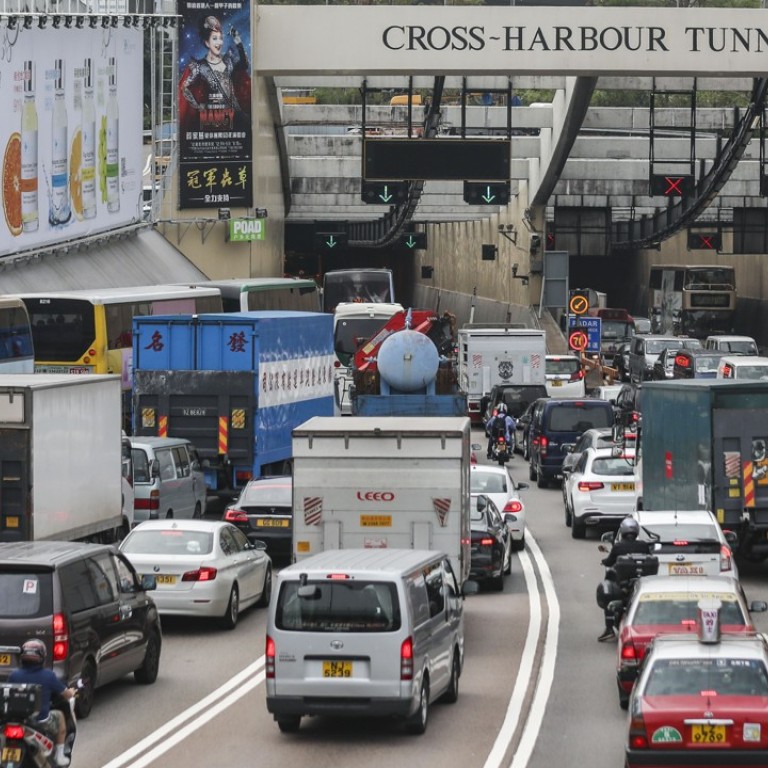
However unpopular, tunnel tolls in Hong Kong must rise
Chief Executive Carrie Lam has thrown down the gauntlet to lawmakers, who will ultimately have to make the final decision
It does not take a Nobel laureate in economics to explain that Hong Kong’s cross-harbour traffic congestion could be eased by making less-used tunnels cheaper and overused ones more expensive. Regrettably, successive governments dodged the problem with repeated consultancy studies. Thankfully, there appears to be light at the end of this tunnel, if lawmakers put aside election politics and accept Chief Executive Carrie Lam Cheng Yuet-ngor’s proposal to solve this problem once and for all. Lam is to be commended for pushing ahead with the long overdue toll adjustments to help even out traffic at the three cross-harbour tunnels. But she must also be aware that the target enforcement date coincides with the Legislative Council polls in 2020. Under the plan, the Western Harbour Tunnel toll for private cars will be lowered from HK$70 to HK$50 with the help of government subsidies, while the levels for the Cross Harbour Tunnel and the Eastern Harbour Tunnel will be doubled and raised by 60 per cent, respectively, to HK$40. Lawmakers are reluctant to back the increase at this stage, fearing a backlash at the ballot box.
The looming deadlock owes much to years of all talk but no action by successive administrations. This is not helped when little is done to curb the growth in vehicle numbers. Meanwhile, the city continues to suffer from the economic and environmental costs. Lam said the ball was now in the lawmakers’ court, or they could wait until the government takes back the Western Harbour Tunnel in 2023. Concerns were raised whether such a “take-it-or-leave-it” attitude represented Lam’s new governance style. Some lawmakers criticised her for being irresponsible in pushing for changes that they found hard to swallow.
The higher tolls would be bad news for commuters, who would rather endure congestion than pay more. The government should explain why the subsidies cannot be increased further to minimise the effects, and whether there is room for toll reductions after 2023. While it may be unrealistic to expect no congestion at all times, the problem will only worsen if nothing is done. Lam says she will do what is right even if it makes her unpopular. The same is expected of lawmakers.

